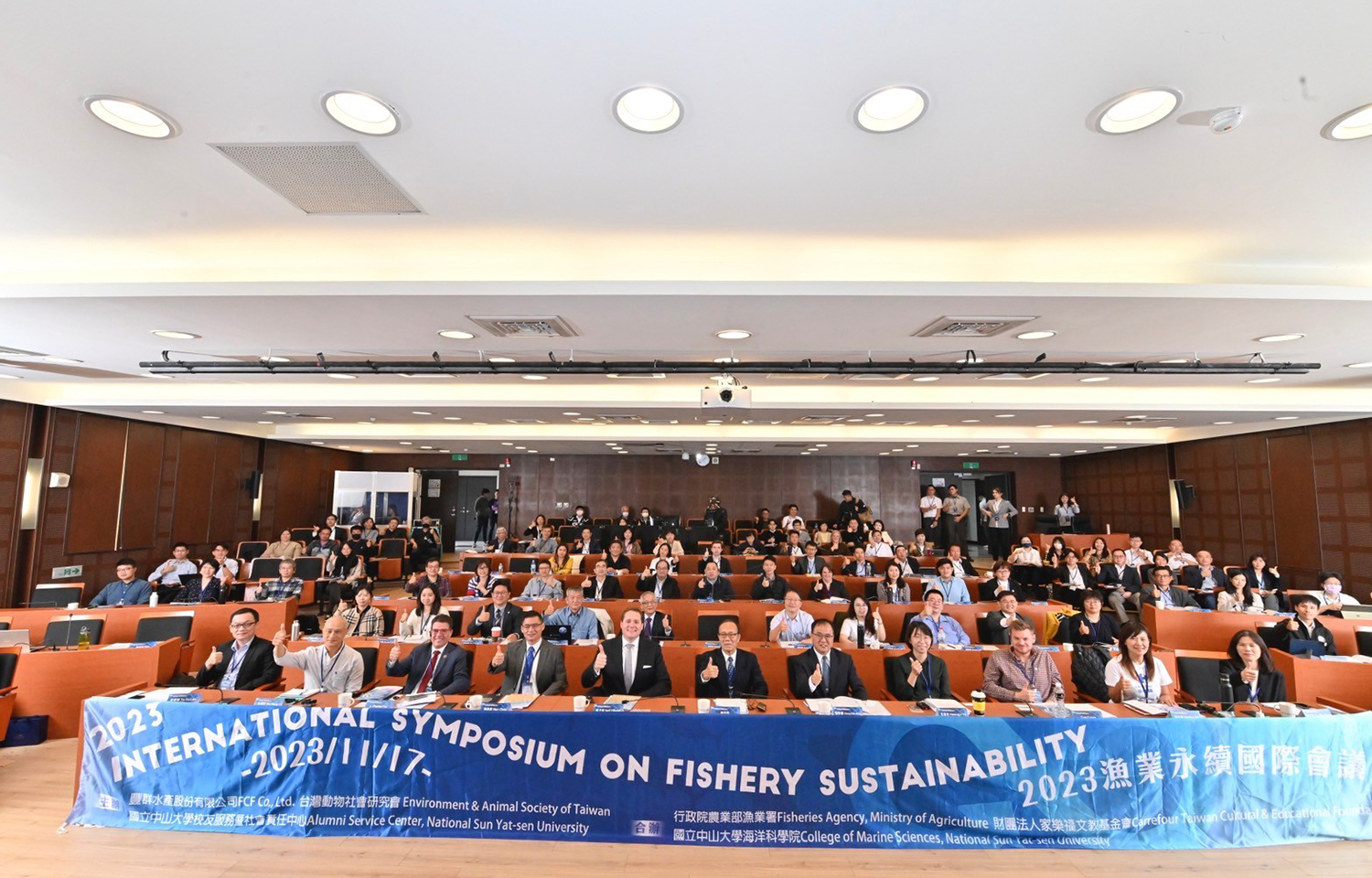SeafoodSource is closely following the sustainable seafood movement by compiling a regular round-up of sector updates about sustainability initiatives and certifications.
- Taiwan-based tuna firm FCF Co. hosted the International Symposium on Fishery Sustainability in collaboration with the Environment and Animal Society of Taiwan (EAST) and Alumni Service Center and Social Engagement, National Sun Yat-sen University (NSYU) on 17 November 2023 in Kaohsiung, Taiwan.
The symposium, which also featured representatives of hosted representatives from the Fisheries Agency, Ministry of Agriculture (Taiwan), College of Marine Sciences, NSYU, and Carrefour Taiwan Cultural & Educational Foundation, was focused on discussing solutions for enhancing environmental sustainability in the seafood sector.
“The three-panel sessions addressed pivotal topics, spotlighting the collaborative endeavors of diverse stakeholders in addressing pressing issues such as lack of effective fisheries scientific data, unclear current regulations, practical, and effective best fisheries practices, and specific market expectations for traceability," FCF said in a release. "Panel speakers represented a wide array of sectors, encompassing governmental bodies, and non-governmental organizations."
In his keynote address, Oceans 5 Executive Director Chuck Fox outlined his ideas for optimal technologies for sustainable sourcing, biodiversity preservation, and seafood traceability.
FCF Co., which purchased Bumble Bee Foods in 2020, is one of the world's largest tuna companies.
-The government of Canada has announced it will award CAD 3.5 million (USD 2.5 million, EUR 2.3 million) in funding for 18 initiatives under the Fisheries and Aquaculture Clean Technology Adoption Program (FACTAP).
Funding will support small- and medium-sized businesses' efforts for clean technology incorporation in business development initiatives, according to the announcement.
"With today's announcement, our government is giving our aquaculture producers, harvesters, and processors, as well as commercial fishers the tools they need to implement more environmentally efficient practices and invest in cutting-edge techniques and technologies,” Canada's Department of Fisheries and Oceans said in a release. “From coast to coast to coast, I'm confident this investment will help the aquaculture and fisheries sectors to become even more sustainable and environmentally friendly."
DFO said the funding will also be used to support the adoption of clean technologies in Canada's fisheries and aquaculture sector to improve environmental performance and competitiveness.
- The Pew Charitable Trusts has selected six researchers as recipients for the 2024 Pew fellowship in marine conservation. The recipients are from China, Canada, Denmark, the U.K., the U.S., and the Phillippines, and will join a community of more than 200 fellows working on marine sustainability initiatives.
The recipients include Emi Uchida, Christina Hicks, James Kar-Hei Fang, Marine Cusa, Dyhia Belhabib, and Rene Abesamis.
"The world's oceans have never been under greater threat. Humankind relies on healthy oceans in countless ways," Pew President and CEO Susan K. Urahn said in a release. "These talented scientists are working to conserve and protect marine species and habitats across the globe, from Africa's coasts to the coral reefs of the western Pacific Ocean."
- Cesson-Sévigné, France-based vessel, and space detection technology company Unseenlabs announced it has raised EUR 85 million (USD 78.6 million) in a fundraising round supported by Supernova Invest, ISA LT via its Strategic Transition Fund, and UNEXO.
The company will use the funding to support the growth of its maritime surveillance technology enabling precise geolocation of ships at sea, accelerating growth on satellite launches, expanding to international markets, and further R&D, Unseenlabs said in a release.
"Our technology's unique capability is its ability to detect any ship, even those that wish to remain unseen. With 11 satellites currently orbiting at an altitude of 520 kilometers and 10 more planned before the end of 2025, we are continuously enhancing our ability to deliver critical data for maritime security, anti-piracy efforts, and environmental protection,” the company said in a release.
- Feltham, England-based food brand owner Nomad Foods has released a study revealing the ideal temperature for frozen food storage to enable carbon emission reductions and and cost savings.
The company worked with the food science and technology association Campden BRI to conduct a six-month pilot research project to confirm that storing frozen food at 15 degrees Celsius was more efficient than 18 degrees Celsius, the industry standard, Nomad Foods said in a release. The study also found that freezer energy consumption can be increased by 10 percent without any need for reformulating any products.
“For 100 years frozen food has played a critical role in bringing great tasting, nutritious, convenient, and affordable food to consumers while minimizing waste. Over the next 100 years, as pressure intensifies to address the global food systems contribution to climate change, I am confident that frozen food can be a key part of the solution,” Nomad Foods CEO Stéfan Descheemaeker said in a release. “Frozen food already compares very well against alternatives in terms of carbon footprint. Our study shows there is potential to further reduce energy consumption and carbon emissions when storing or transporting frozen food, with just a simple temperature change.”








